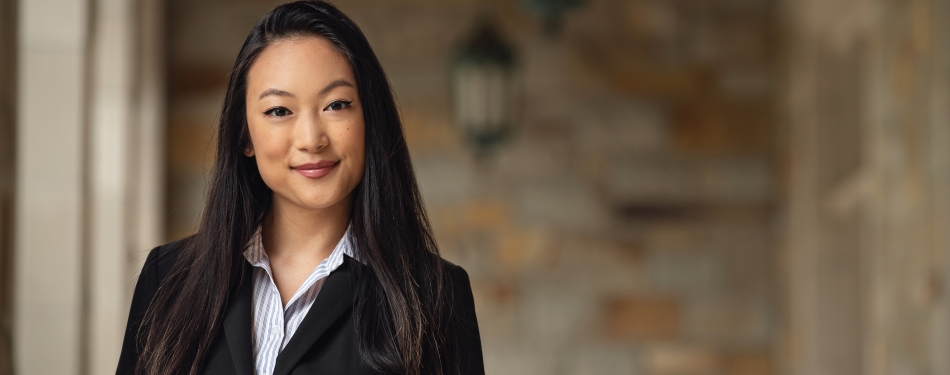Deborah Won, ’21
Alaska Supreme Court, Anchorage, AK
Deborah Won joined the Civil Rights Litigation Clinic in her 3L year to work on a groundbreaking case about facial recognition and wrongful arrest and imprisonment. “Being able to represent an individual who was wrongfully accused by an algorithmic tool was the proudest moment of my time at Michigan Law,” she says.” It’s the type of case I would hope for as a seasoned lawyer, let alone as a law student.”
Being able to represent an individual who was wrongfully accused by an algorithmic tool was the proudest moment of my time at Michigan Law,” she says.” It’s the type of case I would hope for as a seasoned lawyer, let alone as a law student.”
Writing in the Michigan Law Review, Won demonstrates how dangerous algorithmic policing can be, as many algorithmic systems have been shown to be flawed and racially biased. She argues that these systems are especially problematic when proprietors invoke trade secrecy to limit scrutiny of their products. She notes that under Brady v. Maryland, defendants must have access to evidence that is favorable to their case; if an algorithmic tool has been shown to exhibit racial bias or has a track record of being faulty or inconsistent, that is something the defendant should know and be able to use in developing their defense. Won suggests a solution in the form of an evidentiary rule that uses a jury instruction to remedy clashes between trade secrecy and Brady’s constitutional mandate.
Following graduation, Won accepted a clerkship with the Alaska Supreme Court. During her first year, she is clerking alongside another Michigan Law graduate in the chambers of Justice Dario Borghesan, ’08. “I decided to clerk for three years after law school because I think clerkships help you grow as a lawyer, and the experience will expose me to three different courts—state appellate, federal appellate, and federal district—while I consider whether I want to practice appellate or trial law,” Won says.

